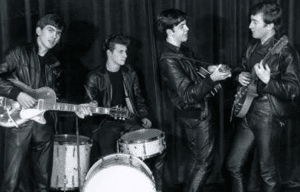Why New York Times Wanted To Cancel Classic Rock

AC/DC / Facebook
Transgender activist and author Jennifer Finney Boylan has sparked controversy with a recent opinion piece in The New York Times that calls for the removal of classic songs like Don McLean’s “American Pie” and the Rolling Stones’ “Brown Sugar.” Boylan contends that songs with problematic creators or lyrics should be left in the past.
Boylan remarked:
“I want to live in a world where I can be moved by literature, music, and art without having to construct complex apologies for that work or for its creators.”
Boylan asserts that songs that don’t adhere to the inclusive and just norms of today have no place in contemporary society. Her criticism extends beyond the lyrics; she queries whether musicians such as McLean or the Stones,
The “Brown Sugar” Controversy
Boylan’s column touched on the Rolling Stones’ decision to stop performing “Brown Sugar” on their current tour. The song’s lyrics, which reference slavery, have faced scrutiny. Keith Richards himself expressed confusion, saying, “If the Stones don’t know why the song has to go, does simply removing it from their tour sheet go far enough?” For Boylan, the answer is no—she implies that just shelving the song doesn’t address its deeper issues.
Art, Context, and Cancel Culture
This discussion comes amidst broader debates about cancel culture, including backlash against comedian Dave Chappelle for comments on transgenderism in his Netflix special The Closer. Boylan’s stance highlights a growing tension: Should art be judged solely by the actions of its creators or the standards of its time? While some feel canceling problematic works erases cultural history, others see it as a necessary step toward progress.
Whether you agree with Boylan or not, the debate underscores an ongoing cultural shift—one that challenges how we reconcile beloved art with evolving social values.













